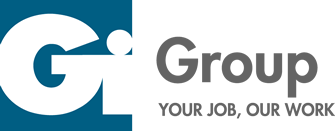Yesterday’s ONS figures show that the number of job vacancies in July to September 2021 was a record high of 1,102,000, an increase of 318,000 from its pre-pandemic (January to March 2020) level; this was the second consecutive month that the three-month average has risen over one million.
While this surge in vacancies suggests economic growth following the coronavirus pandemic, businesses are struggling to fill these roles, leading to an increasing talent shortage, unsustainable salary hikes across sectors and increasingly rhetoric around supply chain issues. This is an untenable situation and the bubble is going to burst.
Discussing the current statistics, Gi Group UK’s CEO Paulo Canoa said “Unfortunately, there is no silver bullet to address these issues but what is clear is that businesses must do more to retain and develop existing employees, attract new talent in a competitive market and act quickly during the recruitment process to ensure they do not risk losing out on the best candidates.
“If you have been struggling to recruit for some time, you must be open to new ideas to make the business more attractive to prospective employees. Flexibility is paramount now, especially around how you can remove barriers for certain demographics, for example students and parents. Furthermore, in order to address the ongoing skills shortage, you must consider investing in fundamental, long-term measures now to make the business more sustainable in the future. The current crisis must act as a wake-up call to organisations that doing what you’ve always done will no longer work.”
As Neil Carberry, CEO at Recruitment & Employment Federation states: “Firms must be able to meet growing demand, and do so more efficiently (i.e., productivity needs to rise). That means investment, which feels difficult now with labour, tax and material costs all rising. We need a plan now for a soft slowdown from the post-pandemic sugar rush, if pay rises and growth are to be sustained. There are big issues to pick up on: workforce planning, skills, youth unemployment and capital investment to get this right – and recruitment has a huge role to play.”
In the current climate businesses must show the adaptability and resilience on display during the pandemic and be seen to be taking active steps to ensure their business is an attractive place to work through investment in training as well as targeted employee retention and engagement schemes or risk losing the war on talent.
About Gi Group
Gi Group is one of the world’s leading companies that provide the best services for the development of the labour market. Gi Group is active in the fields of temporary recruitment, permanent and professional staffing, search and selection, executive search, outsourcing, training, outplacement and HR consultancy. Thanks to our direct presence and strategic partnerships in the UK and in more than 57 countries across Europe, APAC, the Americas and Africa, we can guarantee efficiency and quick response.
We are able to assist all clients and candidates, and we have developed strong expertise in large and multinational organisations, for which we have implemented global solutions through specialist divisions and dedicated local and international teams. Gi group are ranked globally as one of the largest staffing firms by Staffing Industry Analysts, and we are also a global corporate member of the World Employment Confederation (formerly CIETT).
If you are currently looking to recruit or want to learn more about Gi Group’s Workforce and RPO Solutions, please email InfoUK@gigroup.com.












